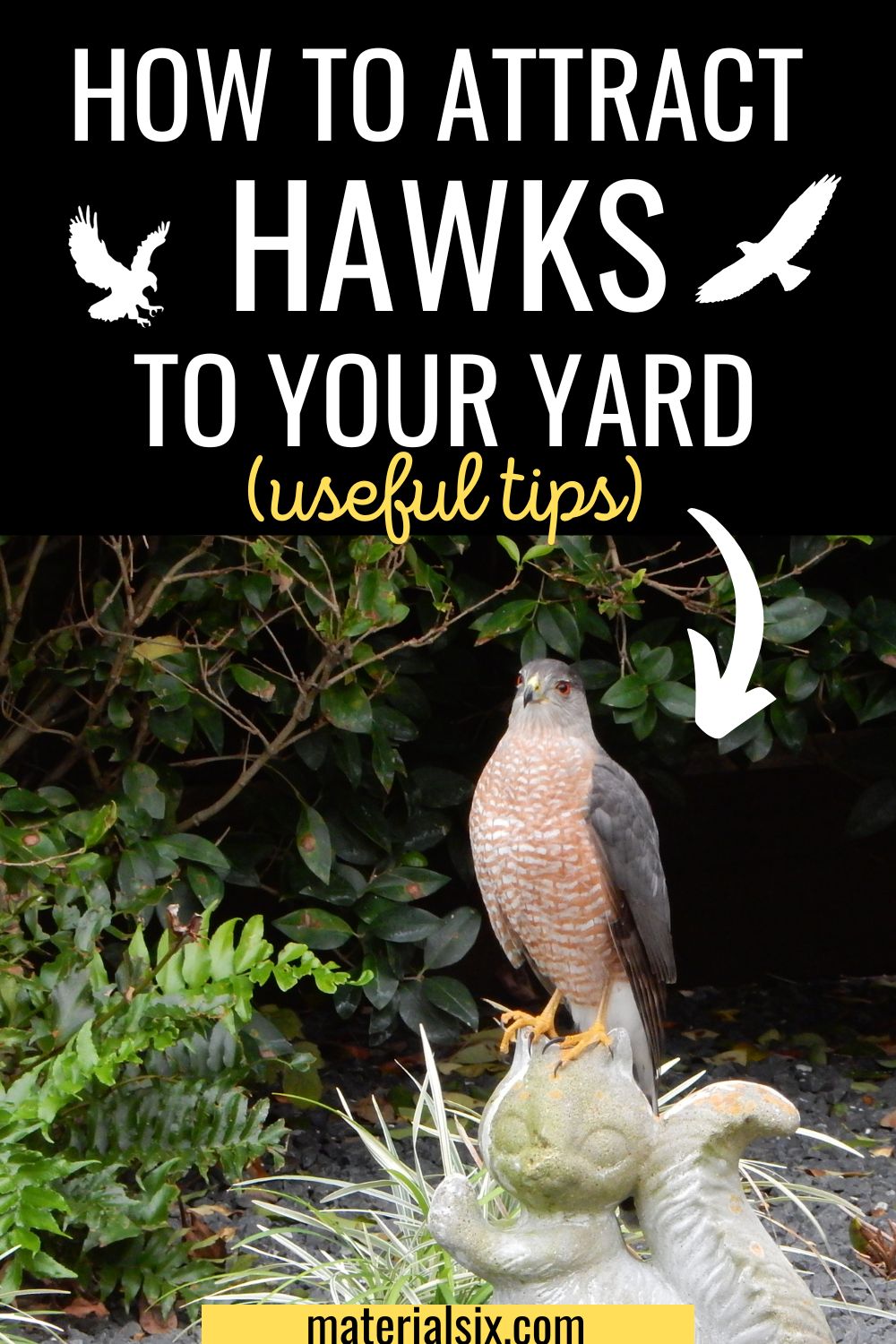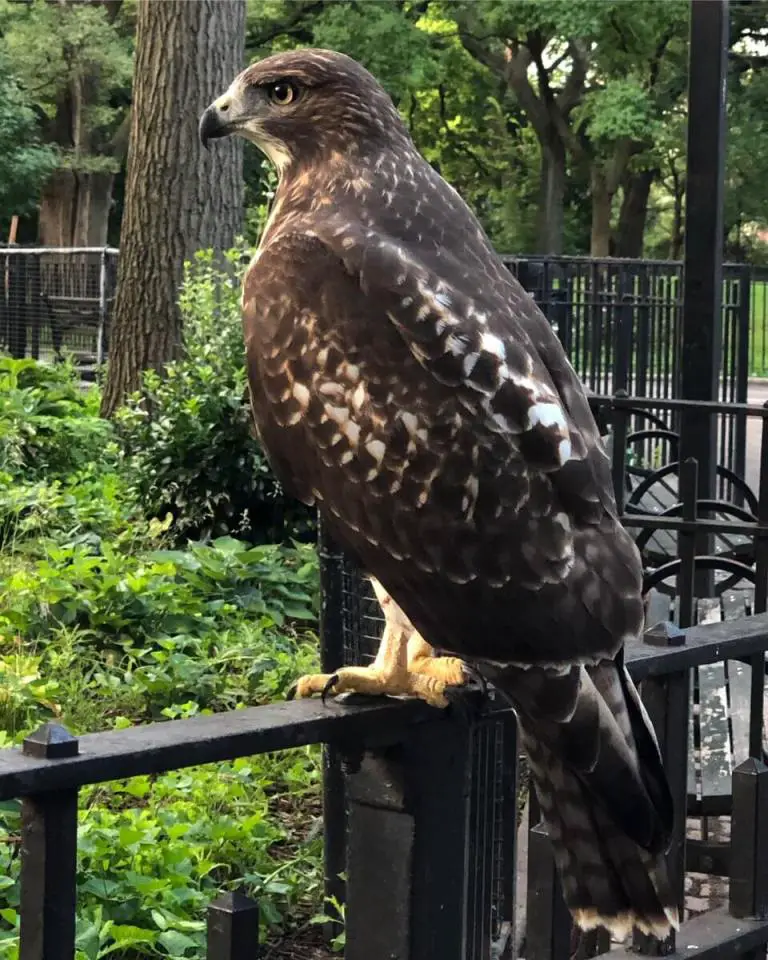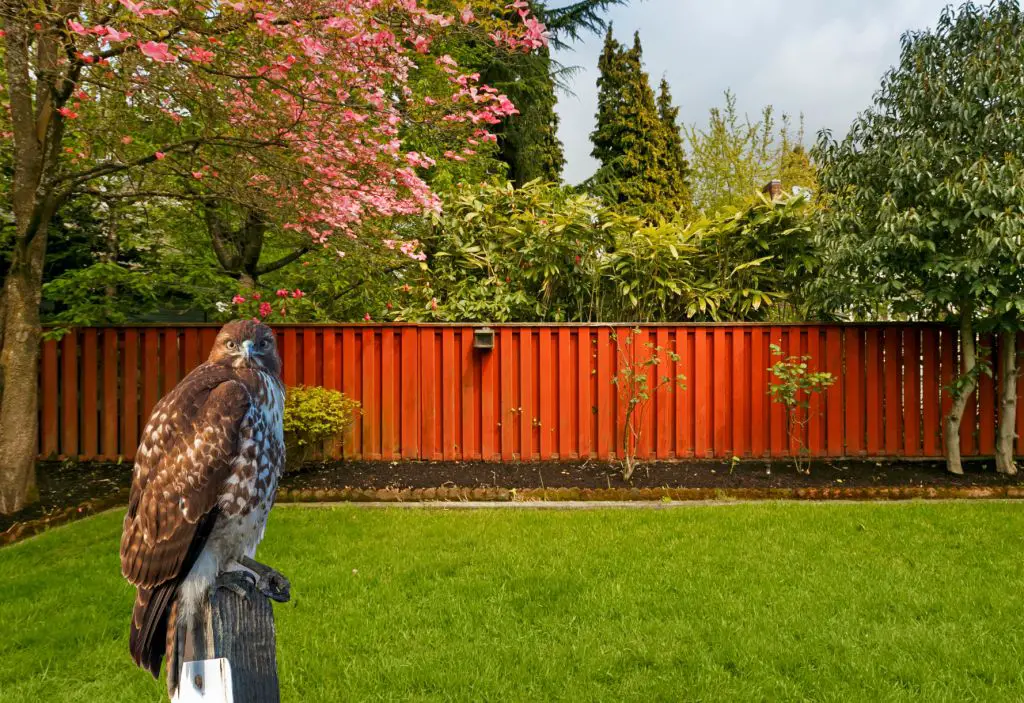Want to attract birds to your yard? What about hawks? Knowing how to attract hawks to tour the backyard or garden gives you great benefits, especially pest control. Having hawks in your garden also creates a more balanced life cycle, perfect for a more natural garden ecosystem.
Here is everything you need to know before attracting these birds to your yard (and keep them there).

Reasons to Attract Hawks to Garden
Hawks are great pest control because they prey on mice, gophers, squirrels, and rats. If you often have rodent problems, having hawks as backyard species is great for protecting your plants. Besides, hawks eat large insects and snakes, keeping your house safe from these animals.
Attracting hawks to the yard is also a great achievement in creating a healthy backyard ecosystem. Hawks, especially the smaller ones, have impressive looks and colorings. Birdwatchers, both professional and amateur, will have a blast observing hawks from inside the house.
Tips to Attract Hawks to the Yard

The best way to attract hawks is by using natural methods. You must provide all the natural elements hawks like from a habitat: meal, perching spot, water, and shelter. Here are various tips to attract hawks to the yard in natural ways.
1. Provide Living Food Source
Hawks will not come if you do not have living food sources they can hunt. You can install a bird feeder for this purpose and let small birds come for the hawks to kill. A robust garden is usually full of small animals for hawks. Remember, hawks do not like being baited with dead animals, so you should not do that.
You can fill bird feeders with delicious treats for small birds, such as seeds, mealworms, peanuts, and yes, jellies! The feeders will attract varieties of small birds the hawks can hunt, like woodpeckers, orioles, chickadees, and jays.
2. Provide Shelters and Perching Spots
How to attract hawks to your garden if you do not offer them shelters? Hawks need the perfect spots for both spying on preys and relaxing after finishing meals. Deciduous and coniferous trees are great options for these spots. You can plant snags or any pine trees for hawks to perch and rest.
What if you cannot plant such trees? Provide structures that can serve as shelters or perching spots. Deck railings, gazebos, or large bird boxes hanging from a tree will do.
3. Provide Birdbath
A large birdbath gives hawks a great place to cool off. Hawks may not drink too much since they get liquid from the blood of their preys. However, any hawks will love chances to bathe or cool off, especially during summer or the hottest days of the year. Ideal birdbath models include the wide ones with a fountain and deep basin. You can also have a ground birdbath providing it is wide.
4. Have Nesting Spots
Hawks love places where they can build nests. Larger birds love any trees with big, stable branches. The smaller ones will do with large bird boxes that you hang from a tree. Make sure the boxes are spacious enough for the local species, complete with entrance holes.
5. Keep the Yard Quiet
Hawks wait patiently and quietly until they find the perfect time to grab the preys. Therefore, hawks do not enjoy the noisy, rowdy area. Make sure your yard or garden is a perfect quiet place for them. Have a different activity spot for yourself away from the area where hawks are supposed to come.
Seeing a hawk perching quietly and not hunting or eating? Do not shoo it away! Hawks need time to digest their meals after eating. Scaring them away will make the hawks refuse to return.
6. Keep Yard of Garden Natural
You cannot attract hawks to garden if it does not look natural. While a little pruning, landscaping work, or structure is good, an excessively groomed garden is likely to deter hawks. Natural or rustic gardens are perfect for hawks, and you can also attract their natural prey more easily.
7. Create Safe Habitat for Hawks
Minimize or eliminate the use of insecticides, pesticides, and rodenticides in your garden. You also do not need rodent traps. If hawks regularly visit, you do not need all those products to protect the garden. Contaminated preys will not do good for the hawks.
What Backyard Hawks to Expect?

Types of backyard hawks are different between areas, but some of the most common ones include:
1. Broad-winged Hawks
A common species in North America, these hawks are small yet having chunky bodies. Their broad wings are distinctive when they are flying. The most common look is reddish-brown with white-backed markings on the chest and stomach. There are usually wide black stripes on their tails.
2. Red-shouldered Hawks
Red-shouldered hawks have reddish-brown coloring with streak patterns on their wings and tails. When in flight, their tails spread like fans, and the tip of their wings resembles reaching fingers a little bit.
3. Sharp-shinned Hawks
Sharp-shinned hawks are tiny, with long, slim tails. Their wings look rounded and short when in flight, and their usual colorings are bluish-grey with streak patterns on the underside of the wings. Adult and juvenile birds have broad stripes on their tails.
4. Cooper’s Hawks
Cooper’s hawks are medium-sized with unique colorings. They have bluish-grey backs with reddish chest and streak patterns underneath their wings. When in flight, their wings look short and broad, and their tails have multiple bands.
5. Red-tailed Hawks
As the name suggests, red-tailed hawks have distinctive reddish coloring on their tails. These large hawks show long, reaching wings when in flight, but their tails are open like short, wide fans. You can almost hear the beating sounds when these birds are flapping mid-air due to their sizes.
6. Northern Goshawks
Northern goshawks usually have a slate gray color with markings on their chests and bellies. They are large and bulky with broad wings, but their tails are short.
Hawks are great birds to have if you want to protect your outdoor areas. Knowing how to attract hawks to your garden or yard will protect the place from natural pests.
More from Materialsix.com: